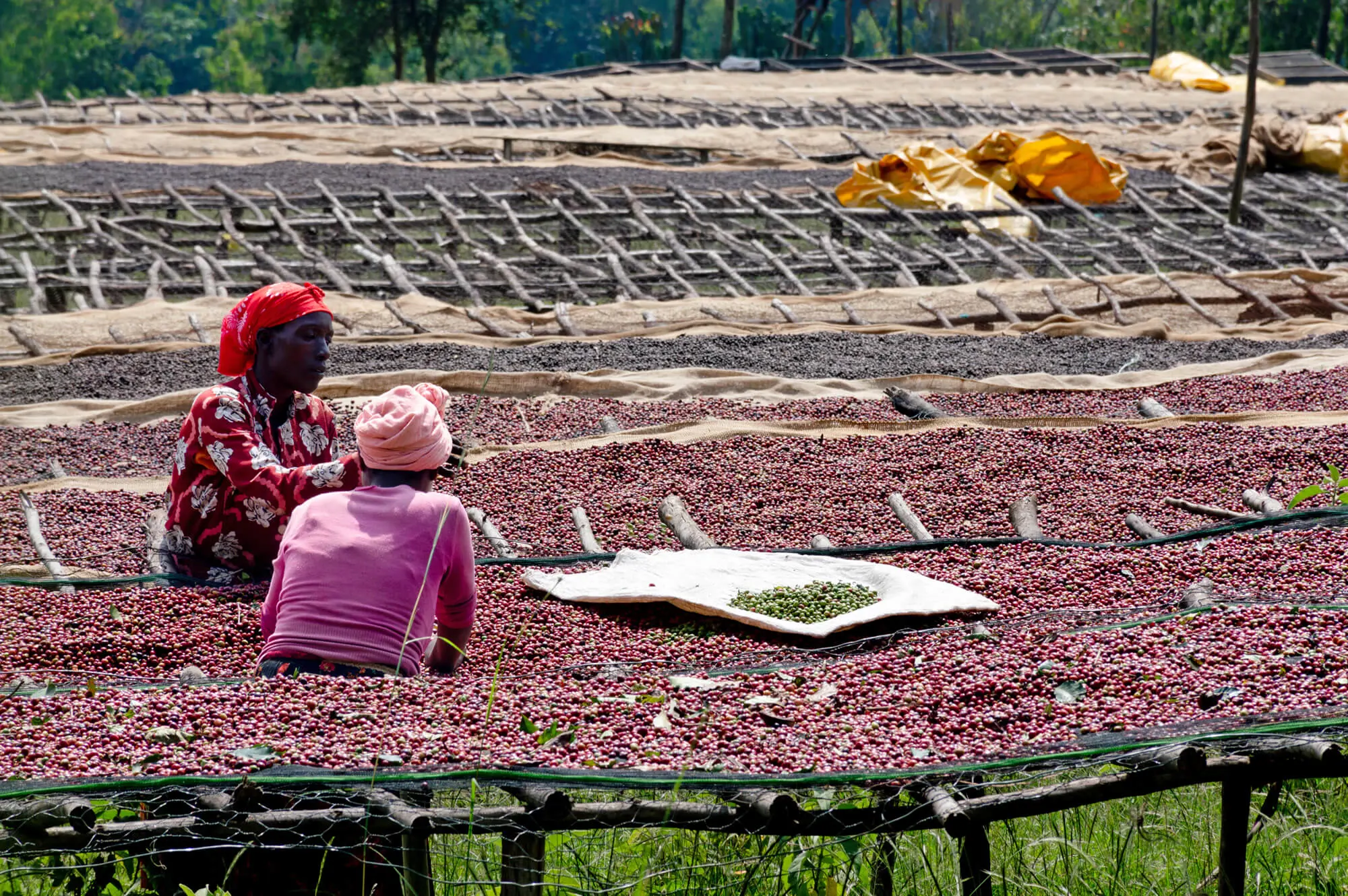Hadji's Washing Station Leku
Hadji's Washing Station Leku

The Story
Daniel B. Halalla was born in southwestern Ethiopia and now lives in Copenhagen, where he serves as the CEO of Impact Roasters. He's in charge of our coffee-sourcing operations in Ethiopia.
In 2016, we began our coffee journey with Daniel, buying our first batch of Ethiopian coffee. This coffee came from the Malokoza region in southwest Ethiopia, which happens to be Daniel's hometown. We undertook some important projects in the area as part of our Impact Trade initiative.
We built a clean water station, providing access to clean drinking water for the local community, and supplied school uniforms for children. In Ethiopia, having a uniform is necessary for attending school, and we wanted to ensure that every child was provided with an education due to the lack of one.
In 2020, we faced challenges due to conflicts and the pandemic, forcing us to halt our Ethiopian coffee imports temporarily. But we didn't give up.
Daniel, along with his cousin Worku and friend Sany, embarked on a new mission to create a reliable coffee-sourcing network in the Sidama region. Their unique approach involved cutting out the middleman by buying coffee directly from farmers and paying them immediately when they delivered their ripe coffee cherries. This was a significant shift from the traditional Ethiopian coffee trading system.

Daniel overlooking washing tanks
The Washing station and Farms
In November 2022, we travelled to Ethiopia with Daniel to gain a deeper understanding of coffee trading and ensure a fair and transparent supply chain. Our coffee now comes from Hadji Suleiman's washing station, where farmers receive immediate payment upon delivery – providing them with crucial financial support.
During our visit, we explored Hadji's station and neighbouring farms. We witnessed the intricate coffee production process, from de-pulping and fermentation to hand sorting and drying.
At the heart of it all are the small-holder farmers. These individuals, often with small plots of land, are the backbone of Ethiopia's coffee industry. They kickstart the process by delivering their ripe coffee cherries directly to local washing stations like Hadji's station.

Coffee sorting is made by hand throughout the whole process.

The coffee from Ethiopia is being washed in tanks after depulping. After the washing the coffee is dried in the sun on raised beds.
